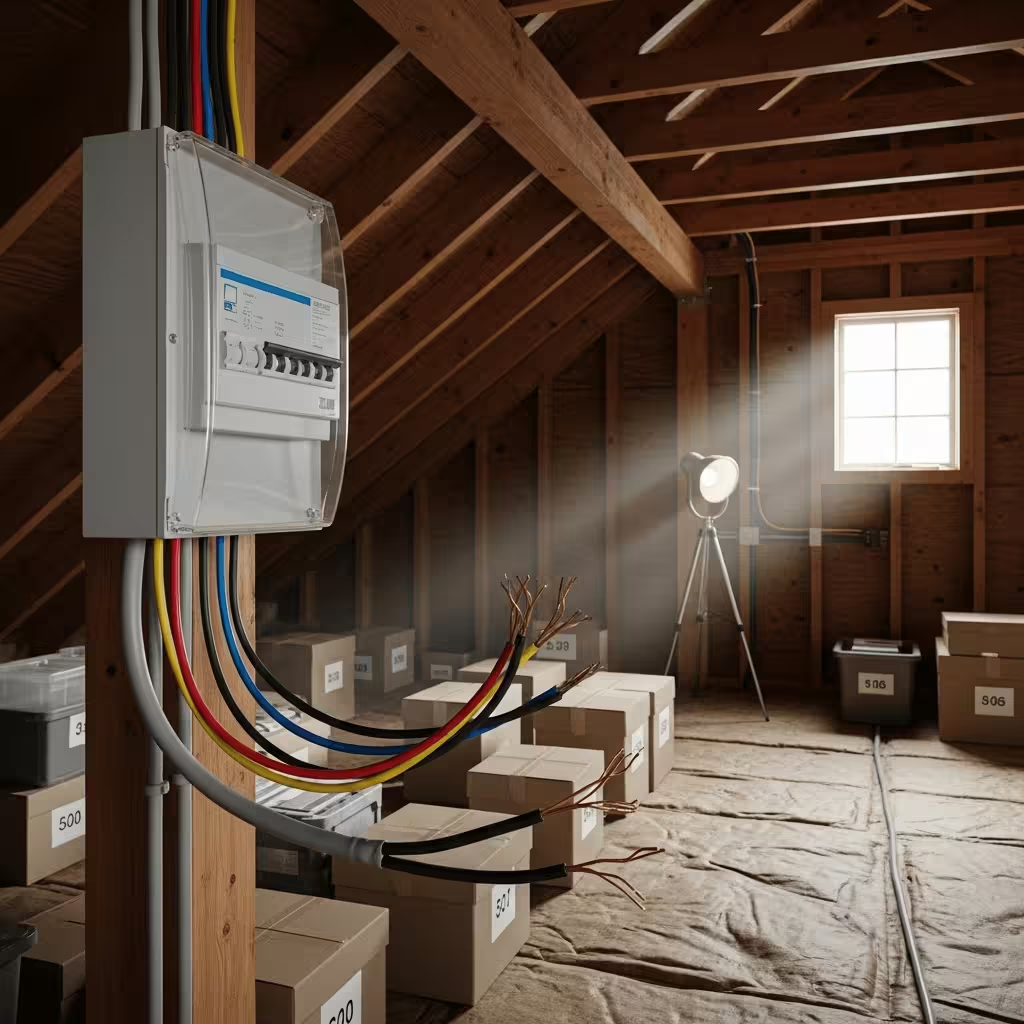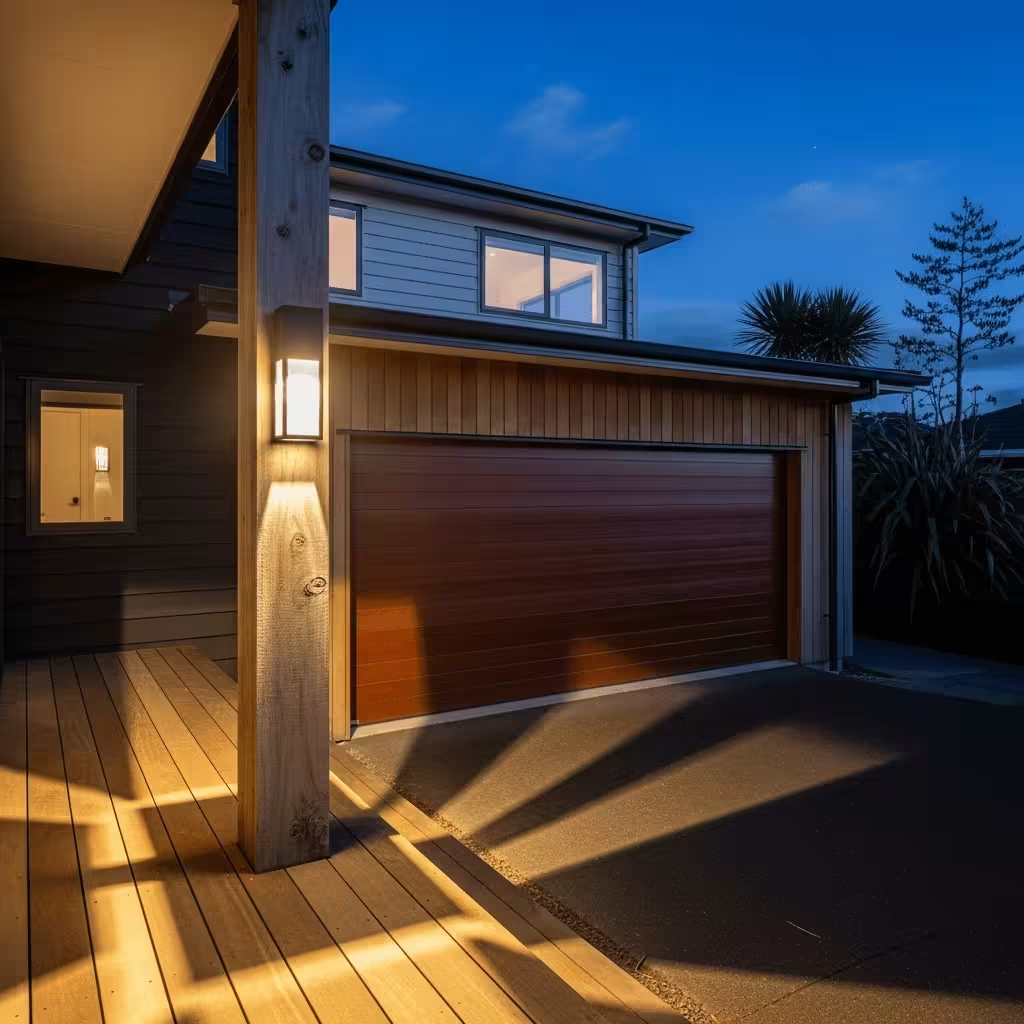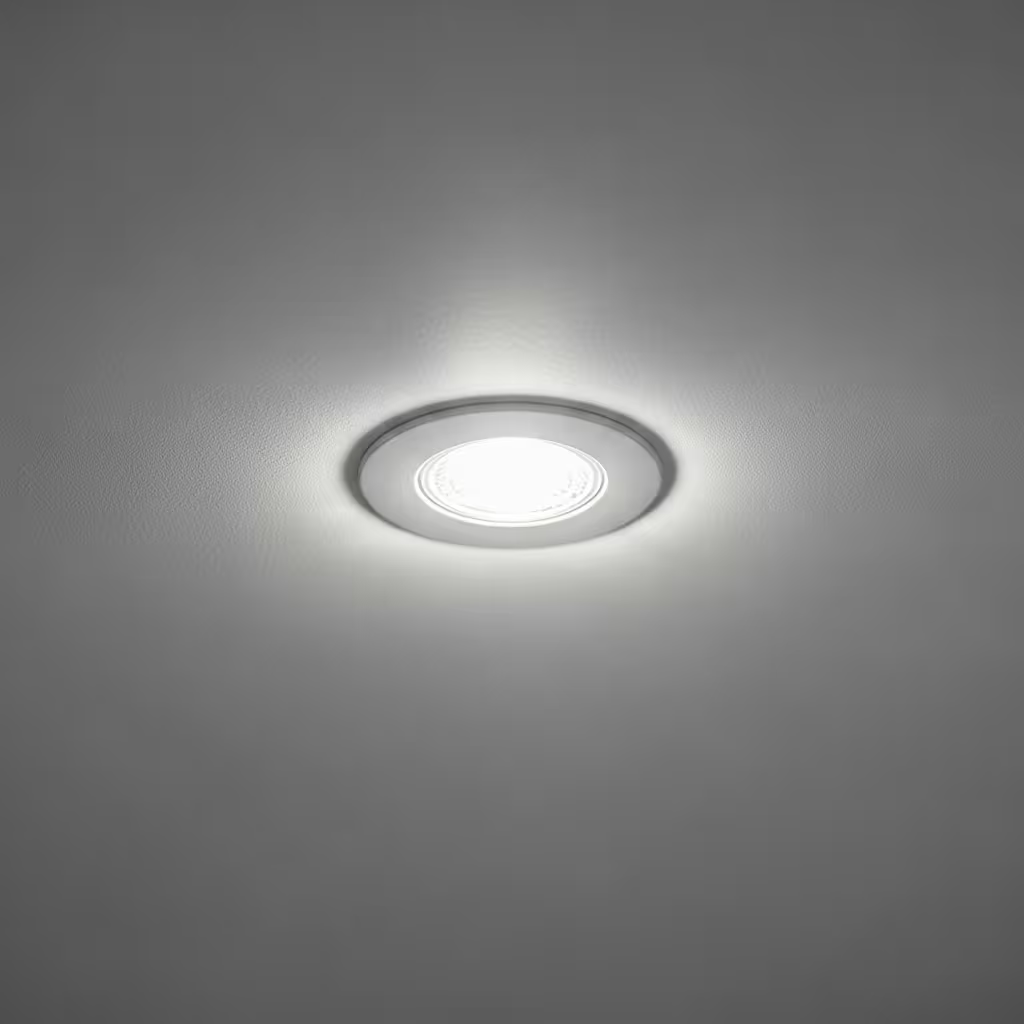Common electrical issues for new builds often include circuit overloads, improper wiring, and compliance failings, particularly in New Zealand residential projects. These issues can compromise safety and efficiency, requiring professional expertise for resolution.
- Introduction
- Circuit Overloads and Safety Risks
- Wiring Faults in New Builds: Identification and Solutions
- Why Choose Weka Electrical for Addressing Electrical Issues for New Builds
- Frequently Asked Questions
- What are common electrical issues faced in new builds in Wellington?
- How can I prevent circuit overloads in my new home?
- What should I do if I suspect wiring faults in my new build?
- How can I ensure the safety of my home’s electrical system?
- Are there specific electrical issues to look out for in New Zealand new builds?
- Why is it important to hire a licensed electrician for new builds?
- What does the term ‘circuit overload’ mean?
- How can Weka Electrical help with electrical issues in new builds?
Navigating the exciting journey of building a new home also entails facing the challenges associated with ensuring everything functions flawlessly, especially electrical systems. Common electrical issues for new builds in New Zealand can pose substantial hurdles if not addressed properly. At the heart of creating energy-efficient and safe dwellings lies a well-executed electrical plan.
Understanding Common Problems
In Wellington, and indeed throughout the rest of the country, homeowners often encounter a range of electrical issues in new builds. Many times, these problems stem from circuit overloads and improper wiring. An overloaded circuit can not only trip breakers, causing inconvenience, but also pose safety risks such as fire hazards due to overheating. Further, improper wiring can lead to energy wastage and malfunctioning equipment, so it is vital these issues are identified early.
The Role of Local Professionals
Weka Electrical, a leading name in the electrician industry based in Wellington, highlights that non-compliance with local electrical codes is another frequent issue. Compliance failures might not only affect the safety and functionality of electrical systems but also the market value of the property. Engaging professionals who understand local regulations and have experience can greatly mitigate these risks.
Solutions to these problems require the expertise and insight of competent electricians. By employing skilled professionals familiar with New Zealand’s electrical standards, particularly those practising in Wellington, homeowners can ensure that potential issues are resolved before they escalate. This approach not only enhances the home’s safety but also contributes to long-term savings and energy efficiency.
Proactive Solutions
Taking proactive measures is crucial. Initial inspections and ongoing maintenance by qualified electricians can preemptively address any discrepancies and prevent costly repairs. Investing in routine checks assures that any emerging problems can be managed directly and effectively, ensuring peace of mind for new homeowners.

Circuit Overloads and Safety Risks
In the realm of new builds, one prevalent issue is circuit overloads, which can significantly compromise both the safety and functionality of an electrical system. Understanding the mechanics of circuit overloads is crucial, especially as homes today tend to incorporate numerous electronic devices and appliances. In New Zealand, regulations are stringent, but even so, builders and homeowners must remain vigilant to avoid potential dangers.
Understanding Circuit Overloads
At its core, a circuit overload occurs when more electrical current flows through a circuit than it can handle. This situation often arises in new builds due to the high demand for power in modern homes, where multiple electronic devices operate concurrently. When circuits are overloaded, the wiring overheats, which can lead to insulation damage and increase the risk of electrical fires. It is important for contractors and electricians to correctly gauge the voltage requirements and capacity during the building phase, thereby preventing the risk of circuit overloads from the outset.
Safety Implications of Circuit Overloads
The safety risks associated with circuit overloads are substantial. In Wellington and across New Zealand, the hazardous potential of an overloaded circuit cannot be understated—it can lead to appliance damage, electrical fires, and even electric shocks. The integration of safety measures such as circuit breakers and residual current devices (RCDs) plays an essential role in preventing such mishaps. These devices interrupt excessive current flow and provide a critical fail-safe against the dangers posed by overloaded circuits.
Preventative Measures for Circuit Overloads
Proactively addressing the threat of circuit overloads involves a multipronged approach. Firstly, engaging experienced electricians, such as Weka Electrical in Wellington, ensures that the electrical design and installation are carried out with precision and in compliance with safety regulations. Furthermore, homeowners should periodically assess their electrical systems, looking out for signs such as flickering lights or frequently tripped breakers, which may indicate an overloaded circuit. It’s also recommended to strategically distribute power loads by dedicating separate circuits for high-energy devices, thereby balancing the electrical demand effectively.
Advanced Technologies to Counter Overloads
Advancements in technology have introduced several innovative products to enhance electrical safety in new builds. Smart circuit breakers and energy management systems offer real-time monitoring of electrical parameters and can automatically adjust power distribution to preclude overloads. By implementing such technologies, residents can enjoy a safer living environment while optimising energy usage and reducing potential hazards.
Transitioning smoothly from understanding the challenges posed by circuit overloads, Section 3 will delve into another significant concern in new builds—wiring faults and their resolution strategies.

Wiring Faults in New Builds: Identification and Solutions
With the dynamics of modern building requirements, wiring faults pose a significant challenge in new builds. Early detection and effective solutions are critical for ensuring safety and functionality. This section breaks down practical strategies for identifying and rectifying wiring issues common in new structures.
Identifying Signs of Wiring Issues
Recognizing the signs early can prevent extensive damage. Common indicators include frequent circuit breaker trips, flickering lights, and intermittent power outages. Additionally, homes that exhibit buzzing sounds near outlets or experience unusual burning smells should be checked for potential electrical faults. Such symptoms often hint at deep-seated wiring issues that need prompt attention.
Effective Strategies for Resolution
Once wiring issues are identified, a strategic approach is essential for resolution. Engage with certified electricians to conduct thorough inspections and utilize advanced diagnostic tools. Inspection should include checking for loose connections, securing circuits, and verifying that installations comply with the latest electrical standards. It is also crucial to employ high-quality materials and modern designs to mitigate potential hazards.
Moreover, integrating smart home technologies can enhance safety. These systems can monitor electrical usage in real-time, identifying irregularities that might suggest underlying wiring issues.
Importance of Routine Maintenance
Regular maintenance plays a vital role in preventing electrical failures. Create a maintenance schedule that includes routine checks for all electrical installations, ensuring they remain in optimal condition. This proactive approach not only enhances the lifespan of electrical systems but also aids in avoiding sudden malfunctions and the associated risks of fire or electric shock.
In our next section, we will explore why Weka Electrical in Wellington is the ideal choice for addressing electrical issues for new builds. From expert knowledge to comprehensive services, we offer solutions tailored to safeguard your property against electrical faults.
Why Choose Weka Electrical for Addressing Electrical Issues for New Builds
When it comes to handling electrical issues for Wellington new builds, Weka Electrical stands out as a leader in the industry. Offering a robust combination of local expertise, a commitment to service quality, and a reputation for client satisfaction, Weka Electrical is a name you can trust.
Experienced Local Experts
Weka Electrical, your experienced Wellington electrician, has a deep understanding of the local building regulations and electrical standards, which is crucial for addressing issues specific to new builds. Our team of qualified electricians brings years of hands-on experience in diagnosing and rectifying electrical challenges that are unique to the area. Whether it’s circuit overloads or wiring faults, our local expertise ensures that solutions are not only high-quality but also compliant with New Zealand’s safety standards.
What Sets Us Apart
What truly makes Weka Electrical the optimal choice is our relentless commitment to reliability and professionalism. We employ a client-focused approach, ensuring that each project is completed on time and within budget. Our dedication to quality craftsmanship and attention to detail is evident in every solution we implement.
We understand the importance of effective and safe electrical systems in new builds, and we strive to tailor our services to meet the specific needs of our clients. Coupled with our state-of-the-art equipment and methodologies, our phone support and troubleshooting advice are always just a call away, making us an asset to any new build project in Wellington.
Choosing a reliable electrician for new builds in Wellington is crucial for ensuring long-term safety and operational efficiency. In the upcoming section, we will address the most frequently asked questions about tackling electrical issues in new builds, providing further clarity and guidance.
Frequently Asked Questions
What are common electrical issues faced in new builds in Wellington?
In Wellington, the most common issues include circuit overloads and wiring defects, often due to improper installation or planning. Consulting with an experienced electrician is essential to address these effectively.
How can I prevent circuit overloads in my new home?
To prevent circuit overloads, ensure your electrical system is designed to handle your anticipated power load. Regular maintenance checks can also help identify potential overload risks early.
What should I do if I suspect wiring faults in my new build?
If you suspect wiring faults, it’s crucial to contact a qualified electrician immediately. They can conduct thorough inspections and implement necessary repairs to ensure safety.
How can I ensure the safety of my home’s electrical system?
Ensuring safety starts with a professional installation by certified electricians, followed by regular inspections and maintenance. Installing safety devices like circuit breakers is also advisable.
Are there specific electrical issues to look out for in New Zealand new builds?
Aside from circuit overloads and wiring faults, be aware of potential voltage fluctuations and inadequate grounding, which can affect appliance performance and safety.
Why is it important to hire a licensed electrician for new builds?
Licensed electricians ensure that your electrical installations comply with New Zealand’s safety standards, reducing the risk of hazards and ensuring the reliability of your electrical system.
What does the term ‘circuit overload’ mean?
Circuit overload occurs when more electrical demand is placed on a circuit than it can handle, often leading to tripped breakers or electrical fires. Proper circuit design can mitigate this risk.
How can Weka Electrical help with electrical issues in new builds?
Weka Electrical provides expert services for assessing and addressing common electrical issues in new builds, guaranteeing reliable and safe electrical systems for your home.




